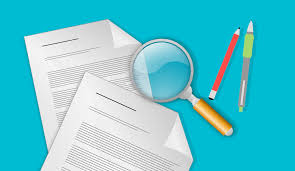In today's world, legal document analysis is an integral part of many business processes and personal matters. Whether you're an entrepreneur reviewing a new contract or a member of a non-profit organization checking the charter, understanding the intricacies of legal analysis can significantly impact your success and protect your interests.
What is Legal Document Analysis?
Legal document analysis is the process of carefully examining and evaluating legal documents to determine their legality, completeness, compliance with current legislation, and potential risks. This process can include various types of documents, such as agreements, charters, contracts, and other legal papers.
Types of Legal Analysis
Let's take a closer look at different types of legal analysis:
- Legal analysis of NGO charters: This is a detailed study of the main document of a non-governmental organization, which helps ensure the charter's compliance with current legislation and protects the interests of the organization's members.
- Legal analysis of agreements: This type of analysis includes checking the terms of the agreement, identifying potential risks, and ensuring the protection of the parties' interests.
- Legal analysis of contracts: Similar to the analysis of agreements, but may include more specific aspects characteristic of certain industries or types of activities.
Each of these types of analysis has its own peculiarities and requires specific knowledge and skills.
The Importance of Professional Analysis
While many may attempt to analyze legal documents on their own, document analysis by a lawyer has several advantages:
- Professional experience and expertise
- Knowledge of current legislation and judicial practice
- Ability to identify hidden risks and ambiguities
Let's consider this in more detail with examples:
NGO Charter Analysis by a Lawyer
When conducting an NGO charter analysis by a lawyer, the specialist will pay attention to such aspects:
- Compliance of the organization's goals and objectives with current legislation
- Clarity in defining the rights and obligations of members
- Correctness of decision-making and management procedures
This will help avoid potential problems in the future and ensure the stable functioning of the organization.
Agreement Analysis by a Lawyer
Agreement analysis by a lawyer includes:
- Checking the legality of all clauses in the agreement
- Assessing the balance of rights and obligations of the parties
- Identifying potential risks and proposing ways to minimize them
A professional approach to agreement analysis can prevent many problems and legal disputes in the future.
Contract Analysis by a Lawyer
Contract analysis by a lawyer is especially important in complex business relationships. A lawyer can:
- Assess the contract's compliance with industry specifics
- Suggest additional clauses to protect the client's interests
- Check for all necessary legal aspects
Professional contract analysis can be a key factor in building successful business relationships.
The Process of Legal Analysis
The process of analysis of documents usually includes the following stages:
- Preliminary familiarization with the document
- Detailed study of each clause
- Comparison with current legislation
- Identification of potential risks and ambiguities
- Preparation of recommendations and conclusions
Each stage requires attention to detail and a deep understanding of legal nuances.
Tools and Methods of Analysis
Modern lawyers use various tools and methods for effective document analysis:
- Specialized software for text analysis
- Databases of legislation and judicial practice
- Methods of critical thinking and logical analysis
These tools help make agreement analysis, NGO charter analysis, and contract analysis more accurate and efficient.
Common Mistakes in Self-Analysis
Many people try to conduct document analysis on their own, but this can lead to serious mistakes:
- Misinterpretation of legal terms
- Missing important details
- Misunderstanding of context and industry specifics
This is why professional document analysis by a lawyer is often the safest and most effective solution.
Question
Is legal analysis needed for all documents?
Respond
Not all documents require professional legal analysis, but for important documents that may have serious consequences (such as contracts with large sums or long-term obligations), professional analysis is highly recommended.
Question
How long does legal document analysis usually take?
Respond
The duration of the analysis depends on the complexity and volume of the document. For documents from 3 to 10 pages, this can take from several hours to several days, depending on the specifics and the need for additional research.
Question
Can legal analysis guarantee the absence of problems in the future?
Respond
While legal analysis significantly reduces risks, it cannot guarantee the complete absence of problems. However, it helps identify potential risks and prepare for possible scenarios.
Legal analysis: the process of studying and evaluating legal documents to determine their legality, completeness, and potential risks.
Non-governmental organization charter: the main document regulating the activities of a non-governmental organization, defining its goals, structure, and rules of operation.
Contract: a legally binding document that defines the terms of an agreement between two or more parties.
The analysis of the civil defense charter by a lawyer is a critical step in ensuring that the charter aligns with legal standards and effectively serves its intended purpose. A legal analysis of the civil defense charter helps identify any inconsistencies with legislation and ensures that all necessary provisions are included for smooth operation. Proper analysis of the civil defense charter prevents future legal issues and strengthens the organization's legal standing.Additionally, the analysis of documents by a lawyer, including contracts, is essential for safeguarding the interests of all parties involved. The legal analysis of contracts helps detect potential risks, unclear terms, and ensures compliance with legal norms. By conducting an analysis of contracts, a lawyer can propose revisions to enhance legal security and prevent conflicts.In conclusion, a comprehensive legal analysis of documents, contracts, and charters plays a crucial role in minimizing risks, protecting rights, and ensuring the success of any legal agreement or organizational document.
The analysis of a contract by a lawyer ensures that all terms are clear, legally sound, and protect the client's interests. A legal analysis of a contract is essential for identifying any ambiguous language or unfair clauses that may lead to disputes in the future. Lawyers also check whether the contract complies with applicable laws and regulations, reducing the risk of potential legal conflicts.Similarly, the analysis of documents by a lawyer, such as agreements, deeds, or corporate bylaws, provides assurance that they meet legal standards and serve their intended purpose. A thorough legal analysis of documents can reveal hidden risks, inaccuracies, or incomplete information that could jeopardize the success of a transaction or agreement.By performing a legal analysis of contracts and documents, a lawyer helps parties avoid misunderstandings, enforce their rights, and ensure that all obligations are fulfilled properly. Ultimately, this process adds a layer of protection and clarity, making sure all agreements are both fair and enforceable.

































